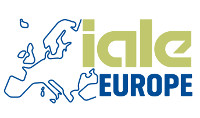Innovating teaching and learning landscape ecology to address the challenges of the Antropocene
Symposium at 10th IALE World Congress, 1-5 July 2019, Milano, Italy
Symposium description
Living in a fast-changing environment and society is challenging, for all species. Especially in the era of the Anthropocene, with an almost irreversible human influence on the environment, societal responses to environmental change are crucial. Worldwide in different geographical contexts (from urban to rural areas, from areas specialised in agriculture or densely populated to remote areas), there is an urgent need for a more sustainable attitude to environment and society. The interest in the topic of the Anthropocene is also increasing in different disciplines. Central to the different approaches is the coupling of the human and biophysical system in one holistic system, which is in line with the core of the discipline of landscape ecology.
Dealing with the changes and challenges of the Anthropocene is also demanding different exceptions of the current and future researchers, policy makers, teachers, practitioners, among others. They have an important task in raising awareness of the need for a more sustainable way of dealing with space and people. Hence, landscape ecology research, education and teaching in the era of the Anthropocene are challenging for both teachers and students and important to formulate solutions to the challenges ahead.
This symposium was questioning how teaching and learning landscape ecology can address these challenges. What do we have to teach? Are we using the appropriate concepts and teaching methods? How can we get students more interested in landscape ecological related topics? What are the societal demands of landscape ecology teaching? What kind of teaching innovations can contribute to building up the knowledge and competencies of future generations? We aimed to assemble talks that bring to discussion the way teaching and learning landscape ecology could be innovated and improved.
We particularly encouraged submissions about:
- how to develop learning lines for teaching landscape ecology in the curricula of students;
- how to cross the bridges between different levels of education;
- how to go beyond traditional teaching methods from different perspectives;
- how to integrating different approaches to understanding the holistic landscape;
- how to integrate different knowledge on real-life examples;
- how to use innovative technologies that contribute to the understanding of the socio-ecological relations in the landscape;
- how landscape can be used as a living lab to build up the social skills of students;
- how to evaluate the landscape ecological knowledge, skills and attitudes necessary to understand and tackle the fast-changing environment and society;
- how to prepare the future teachers to teach landscape ecology.
Of particular interest were approaches that bring together different disciplines and promote interaction within those disciplines as well as with the ‘real world’, the society. Also encouraged were educational approaches that arise from the different landscape ecology perspectives such as the more holistic, humanistic, and society-centred views, grounded approaches as well as the more analytical and biological ecology-centred approaches.
Both presentation of landscape education (as the continuous process of learning about the landscape, environment and society) and teaching (as the formal, planned and organised activity to transfer knowledge, skills and attitudes with a specific purpose in mind) were welcomed.
To enhance the coherence of the symposium, the submitted papers were organised according to subthemes such as (1) level of teaching – from to schools over under- and graduate level to PhD level, (2) didactic and pedagogical aspects of teaching and learning landscape ecology, (3) teaching methods, (4) exchange of good practices among others. This symposium was organised by IALE-Europe working group ‘Education in landscape ecology’ in collaboration with the working group ‘Landscape Ecology in Schools’ of IALE International.
Contributions
Read more here.

